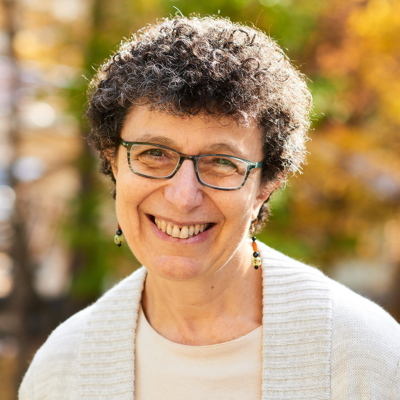When I was nine years old, I visited Israel for the first time with my parents. On a guided tour of the desert, the bus suddenly stopped in the middle of nowhere and the tour guide pointed to rock formations in the distance. “There’s Lot’s wife,” he said, with absolute authority.
“Where?” I cried, excitedly. One by one, everyone on the bus was able to make out her form. “Where?” I kept crying. My parents pointed and tried to show me; the other passengers pointed and tried to show me. But no matter how hard I looked, I could make out no human form in those rocky pillars. Finally, the bus moved on. I was the only one who had not seen Lot’s wife.
I was reminded of Lot’s wife when reflecting on the opening of this week’s Torah portion: Atem nitzavim hayom kulkhem lifnei YHVH. You are nitzavim, today, every one of you, before the divine Source of Life. In one of the most dramatic moments of Torah, as the grand finale approaches, we stand ready to receive the covenant. But what does it actually mean to be nitzavim?
Clearly, to be nitzav is a great deal more than to be “standing.” It is not a posture but a stance. It suggests standing tall, standing proud, solid as a pillar.
And so, I am wondering if perhaps the word is a nod to that great and elusive netziv melakh, the unnamed woman with the courage to look back and witness the horrors of her own home’s destruction. (Genesis 19:26)
(This is not just me free-associating. In next week’s parshah, Moses mentions Sodom: “Ah! The vine for them is from Sodom, From the vineyards of Gomorrah.” [Deuteronomy 32:32] That story is clearly hovering in the air here.)
But if so, what is the connection? I admire her bravery, to be sure, but she is no model for living. Her turning back to look is an ending, not a beginning.
Find more commentaries on Nitzavim-Vayeilech.
Looking back can be terrifying. But the great difference between Lot’s wife and the community assembled in this week’s parshah is that Lot’s wife, brave as she was, was not embedded in the covenant. Looking back could only overwhelm her, swamp her with despair, transform her into a pillar of desiccated tears.
In this week’s parshah, we are a different kind of nitzav. The allusion suggests that we will now be protected by a freely accepted covenant with the Eternal and Infinite Source of Life. And we are further protected by being a part of the covenantal community, stretching backward and forward through time. Thus cushioned, we can look back safely, unflinchingly, to the very real horrors that have shaped our communities and our lives.
We can look back and see the centuries of Jewish persecution and not be paralyzed by our inherited traumas.
We can look back on the genocide, enslavement, and systematic racism that have formed this country, and not lose the hope and dream that America also represents.
We can look back and see the Nakba, feel the tragedy of it in our bones, and not lose sight of the astonishing accomplishments and dream-fulfillment that were also a part of Israel’s founding.
And as the High Holy Days approach, we can look back at our own personal failings, the ways in which we have failed ourselves and our loved ones, and not be immobilized by regret.
Find more commentaries on Social Justice: Leadership and Philosophy.
Protected by covenant, we can be nitzavim, in the image of the divine presence that is nitzav over Jacob as he conjures magnificent dreams, nitzav above the lesser deities in Psalm 82 in order to declare justice as the centerpiece of the divine will.
I look back now and imagine that I can finally see Lot’s wife emerging from the desert: a warning against turning back alone, without the support of the divine Mystery positioned before us, without the support of the covenantal community surrounding us.
As we enter these awe-filled days devoted to looking back on our lives, may we stand secure as pillars, fortified by covenantal love. May our looking back be a spur to action, a beginning and not an ending. May we be nitzavim, every one of us, in our honesty, our courage, and our commitment to bringing healing and reparation to the sins of the past. May we see clearly the choices that are laid before us, and may we accustom ourselves and our communities to always choose life.
Rabbi Rena Blumenthal is a freelance rabbi based in New Paltz, New York. From 2003-2014, she served as the Assistant Director of the Office of Religious & Spiritual Life and Advisor to Jewish Students at Vassar College. Prior to attending rabbinical school, Rena worked as a psychologist for 15 in New York City and Jerusalem. She is the author of the novel, “The Book of Israela.”

